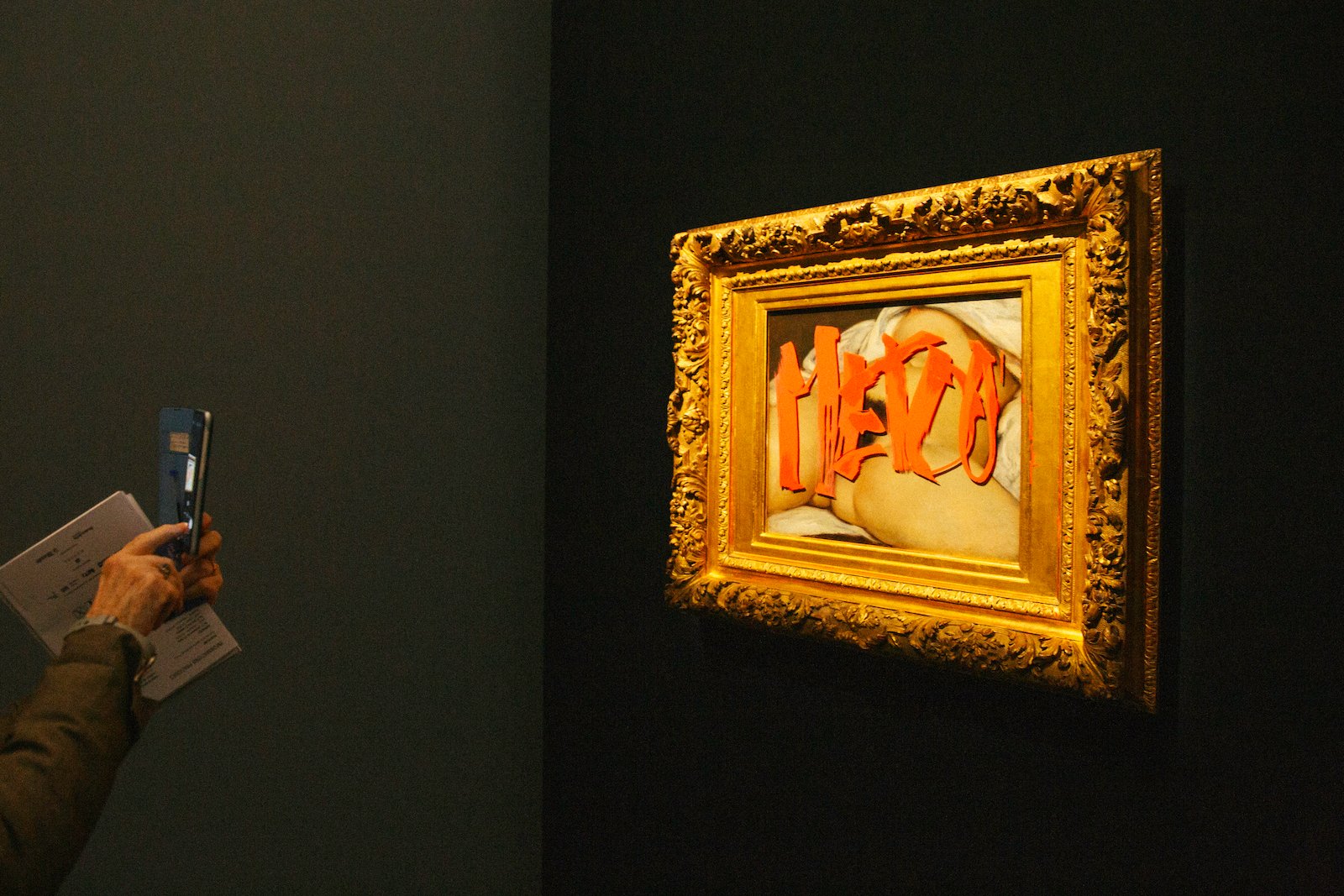
The Musée D’Orsay has filed a police complaint following an incident at the Pompidou-Metz on 6 May, in which Gustave Courbet’s The Origin of the World (1866) was tagged with “Me Too” graffiti.
It was one of five works targeted by two women, identified only as Eva and Laure, in collaboration with performance artist Deborah de Robertis, who conceived the act. She described it as a feminist performance titled You Don’t Separate the Woman from the Artist and has since published an open letter under the same title, in which she decries the “patriarchal violence” of the art world. The two accomplices were removed from the scene by security guards and subsequently arrested.
The museum had loaned the controversial painting as part of a major exhibition focusing the French psychoanalyst Jacques Lacan, who once owned the piece.
According to a statement released by the Musée d’Orsay, although the work was protected by a glass pane—on which the phrase was written—the frame has been stained with numerous red paint splashes that could leave lasting marks.
The painting has been examined by an expert restorer and will not return to the exhibition, which closes on May 27.
One of the protestors stands in front of the tagged Courbet painting at the Pompidou Mertz. Courtesy Deborah de Robertis.
De Robertis also has a work on display in the exhibition, which was one of the tagged pieces. She announced that she was in possession of Annette Messager’s textile piece I Think Therefore I Suck (1991), which was stolen from the show by a third accomplice.
The artist has previously undertaken acts of performance protest, including exposing her vulva in from of the Mona Lisa and appeared nude in front of Édouard Manet’s Olympia (1863).
Targeting famous works of art as a form of dissent has gained renewed prominence in recent years, particularly by climate activists.
In 2022 protestors threw a can of soup at one of Van Gogh’s sunflower paintings at London’s National Gallery, and the Mona Lisa was once again centre stage when it was deluged with the same foodstuff earlier this year (it had previously been smeared with cake).
Other demonstrations have included hurling mashed potato, gluing body parts to works of art, and smashing protective glass, as was the case with Diego Velazquez’s Rokeby Venus (1647), which was attacked in 2023.